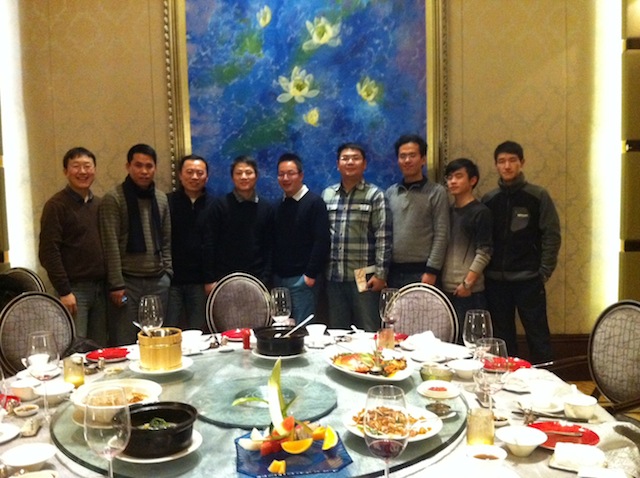Daily report is a great way for people to do some meditation, and review what happened during the day. In my company, many new hire write daily reports, as communication and summary. What about my daily report?
Breakfast
Breakfast is one of the details we need to pay attention. In my so many years of running a company, free breakfast is the single highest ROI benefits I have ever tried. It helped the team to save time, foster communication, and increase the level of happiness. We should do more things to make the breakfast and other small benefits like this better. Free drink is another benefits that wildly spread out in the bay area among Silicon Valley hi-tech companies, and recently are the free meals (with nice chef)… We should increase the standard of the company to the next level.
Avoiding Swapping Thoughts
One of the productivity tip I got is, always send meeting request, send short update the time you think of, and don’t delay. In computer world, swapping memory out of disk is a very high cost activity. In our brain, we should also avoid switch context when it is possible. Like today, after a phone call, I should have sent a very quick note to other guys for the update, make an appointment, and confirm a meeting. Those didn’t happen, and I was dragged into another meeting, and that didn’t happen until deep in the night.
Mobilizing Resources
Something managers should do is to set goals, and mobilize resources among different priorities, and not neccessarily thinking about solutions on behalf of the team members. If something need to happy, ask two questions: 1. Do we have the right metrics, or goal for this. 2. Do we have the resource ready for the team to go for it. If the answers for these two questions are both true, very likely, the goal will be reached (provided you have a really good team).
Team
The efficiency of a discussion is always constrained by the slowest brain. Try to set the standard and keep the bar high. Don’t compromise. Never.
Interviews, and Stanfords
I am amazed how hard it is to setup the system, and how easy it is to follow a system. The current interview process is still a clone of the Microsoft system, and I believe there must be some improvement on that.
The other day, Ann gave a very good point that hiring is all about the priorities. No one is perfect. Just choose those that you cannot compromise, and put them high to the requirement list, and really check that, and then let the other lower priority requirement go. People are perfectly imperfect. Just choose what you want most, and don’t be too greedy. Also, communicate the priority list, compare note among managers, and interviewers to make sure you really act as a team to choose the right person. As a matter of fact, no one can succeed in all aspects.
The Magic Number
When there are more people, we need to consistently change the format of communication, and innovate about how to run a company. The same format working for one team size, does not work for larger, or smaller team. The key is to get the spirit of many activities, and change it for the environment. For example, when we have more people, a big circle of all employees to gather every second week does not work. Even two separate circles cannot make it working well. Need some time to fine tune it.
Culture
Culture of a company need to be passed on, and one of the effective way to do it is to pass on quotes, and stories. Office environments are very good point to get started.
We will have a wall of the famous sayings in the companies, and printed it out with the person who coined it. For example: The speed of code must match the speed of thoughts.
That is all for today.
P.S. I watched the India movie Three Idiots. Yes. Very nice one, but I wondered why a 2009 movie get so hot in China after two years.








